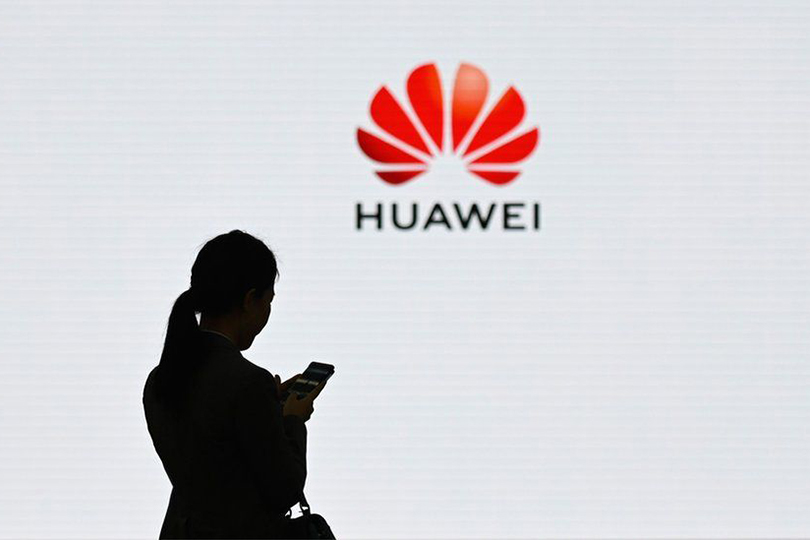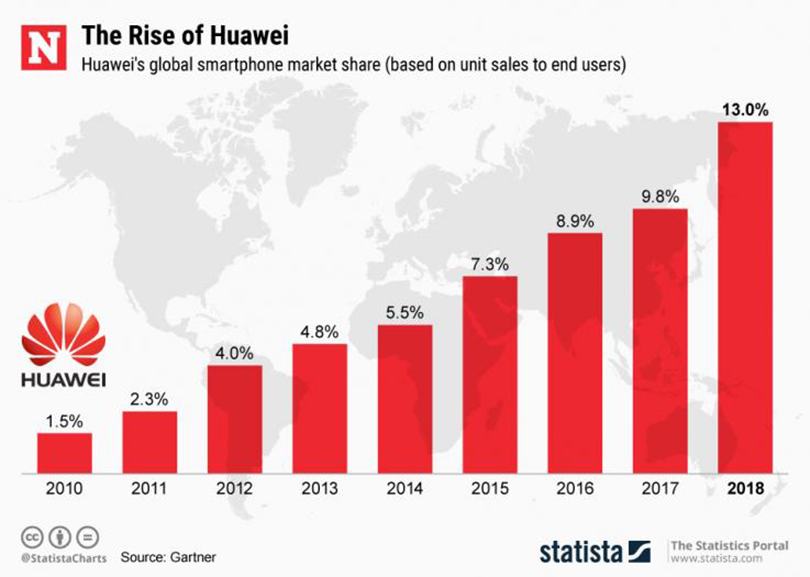The trade war between the U.S. and China stepped up a notch on Sunday, when Google’s parent company announced it had suspended some of its business with the Chinese company.
According to Reuters, Alphabet Inc. halted all business with Huawei that "requires the transfer of hardware, software and technical services."
That means smartphones manufactured by the Chinese company will lose access to Google’s Android operating system, when the U.S. tech giant launches the next version of the software later this year.
Current Huawei models running Google apps would continue to do so, and updates were expected to be available like always. Huawei users could still use the version of the Android operating system available through an open source licence.
“We are complying with the order and reviewing the implications,” a Google spokesperson said, according to Reuters. “For users of our services, Google Play and the security protections from Google Play Protect will continue to function on existing Huawei devices.”
But future Huawei devices would not have access to apps such as Gmail, Google Maps and YouTube, and would also lose access to the Google Play Store.
“Huawei will only be able to use the public version of Android and will not be able to get access to proprietary apps and services from Google,” a source familiar with the matter told Reuters.
The development caps a tumultuous few days for the telecom equipment giant, which the Trump administration blacklisted on Wednesday.
The move would severely complicate the Chinese company’s attempts to do business with U.S. companies. A day later, however, the U.S. Commerce Department said it might tone down the sanctions to prevent the interruption of existing network operations and equipment."
The graphic below, provided by Statista, illustrates Huawei's growing global smartphone market share.
Huawei’s chief executive Ren Zhengfei remained bullish over the ban and told Japanese media over the weekend that Washington’s decision did not catch the company by surprise. "We have already been preparing for this,” he said.
Washington’s decision to blacklist Huawei prevented the company from buying technologies from U.S. companies without the government’s approval. That was a major blow for the Chinese tech giant given that it buys approximately $67 billion worth of components each year, according to a report from Japan’s Nikkei business newspaper.
Zhengfei suggested the company, the world’s second-largest smartphone supplier behind Samsung, was looking at developing its own parts in a bid to overcome the problem.
“This looks like the worst nightmare a company could imagine in having its supply chain disrupted,” Kiranjeet Kaur, senior research manager at IDC Asia-Pacific, said, reported the South China Morning Post.
“Huawei can still go on [with open-source Android] and build its own apps and services on top of it, but that's not going to happen overnight.”
The U.S. was just one of a number of Western countries looking into Huawei products amid concerns the company’s products could be used by China for surveillance when used in 5G mobile networks.
The company repeatedly reiterated it had no affiliation to the Chinese government and defended its independence, but a number of countries have banned telecom companies from using Huawei products.








Comments